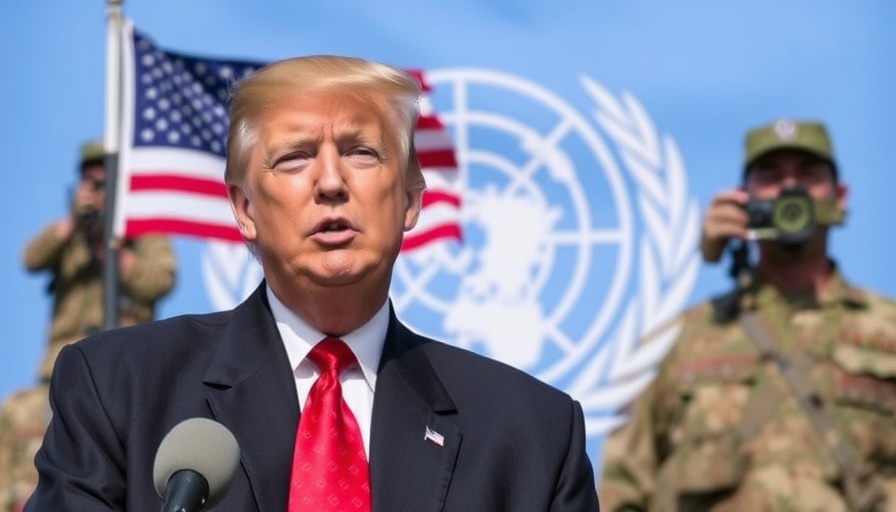
Impending Cuts to UN Funding: A Turning Point for Peacekeeping?
The Trump administration's recent proposal to eliminate funding for United Nations (UN) peacekeeping operations has sparked widespread debate among international stakeholders, particularly those invested in Africa's geopolitical landscape. The implications for African stability, trade relationships, and governance are profound. Without the critical support of UN missions, many nations may experience escalated conflict and reduced international engagement.
Impact of Funding Cuts on African Stability
For decades, UN peacekeeping forces have played a vital role in maintaining stability in various African nations, from the Central African Republic to Mali. The proposed cuts threaten to undermine these operations, impacting local efforts to foster peace and security. Analysts warn that the withdrawal of funding could lead to a resurgence of violence in conflict-ridden areas, potentially destabilizing neighboring countries and creating refugees or increased migration.
The Ripple Effects on Trade and Economic Relations
The intersection of geopolitical stability and economic prosperity cannot be overstated. Peacekeeping operations contribute to creating a favorable environment for trade and investment. With the proposed action, American business leaders and investors may find African markets risking volatility, thus hesitating to engage in potential growth opportunities. Policymakers must recognize that diminished peacekeeping support can stifle Africa’s ambitious aspirations for economic partnership and development.
What This Means for Africa's Global Standing
The U.S. has traditionally been a key player in supporting UN operations, and withdrawal of its financial backing may shift Africa's diplomatic dynamics. Nations within Africa may realign their foreign relations, looking towards alternative partners such as China and the European Union, which continue to engage in various initiatives. This potential shift in alignment could further influence Africa-China relations and Africa-EU trade policies, necessitating a reevaluation of global diplomatic strategies.
A Call to Action for Policymakers
In light of these developments, it is imperative for African leaders and international policymakers to advocate for the essential role of UN peacekeeping in promoting stability. The diplomatic conversations of the coming months will be critical. Stakeholders across the continent must mobilize to demonstrate the significant negative repercussions these funding cuts could entail.
Ultimately, decisions made at the UN level on peacekeeping will not only affect immediate geopolitical conditions but will also resonate through Africa's economic frameworks for years to come. The time for decisive action is now.
 Add Row
Add Row  Add
Add 


 Add Row
Add Row  Add
Add 

Write A Comment